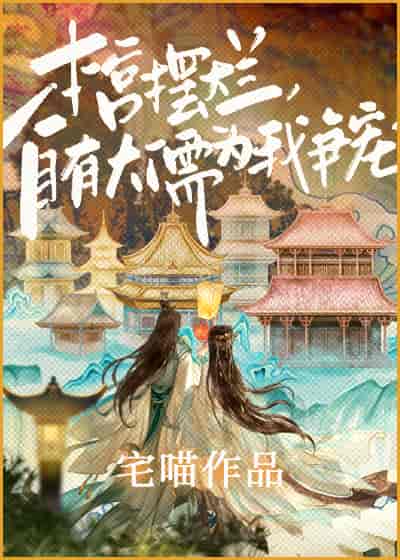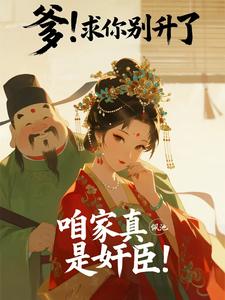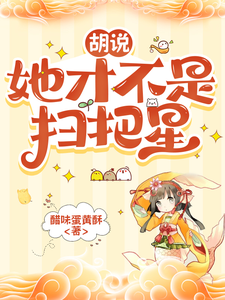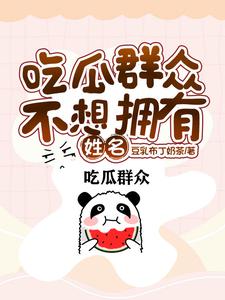After finishing the dough drop soup, Ji Brother seemed noticeably more energetic and even snatched the old loofah scrubber from Shen Miao’s hands to wash the bowls. Shen Miao couldn’t resist touching his forehead—his fever had truly subsided!
For a moment, she didn’t know whether to marvel at Chief Physician Zhao’s miraculous foot patches or suspect that Ji Brother had been starved to such a state by Uncle Shen’s family.
Still, the fever breaking was good news. Shen Miao lost the tug-of-war over the dishes and let Ji Brother wash them. In the Song Dynasty, cleaning agents were mainly rice water, plant ash, tea seed powder, or soapberries—the latter two mostly used by wealthier households. After the fire, plant ash was scattered everywhere in the Shen household. Ji Brother scooped a handful from the collapsed wall and squatted to scrub the bowls with practiced ease.
There wasn’t much grease anyway, so a quick rinse was enough.
Meanwhile, Shen Miao led the clingy Sister Xiang to ladle the remaining soup into a clay pot and deliver it to the Gu family. The back door of the Gu residence was open, but when she peeked inside, the courtyard was silent. She called out twice for Aunt Gu, but no one answered, so she left the pot on the table and returned.
Back home, she started brewing Ji Brother’s medicine before heading to the front of the house to assess the damage. The Shen family’s shop had previously been rented out as an eatery, so the front still had five or six sets of tables, chairs, and a counter—though now in complete disarray.
Fortunately, the damage here was lighter than in the back hall. Shen Miao ran her hand over the smoke-stained walls, tapping to confirm their sturdiness. Most of the remaining furniture was ruined, so she rolled up her sleeves and began hauling the broken wood to the backyard, with Sister Xiang trailing behind to help carry the smaller pieces.
Once Ji Brother finished washing the bowls, he joined the cleanup effort. Shen Miao couldn’t shoo him away, so she assigned him lighter tasks like sprinkling water and sweeping, reminding him to take frequent breaks.
After more than half a shichen (an hour), the place was roughly tidied. Sweat-drenched, Shen Miao stood in the now-empty shop, fanning herself for a brief rest.
Her mind, however, refused to idle. She thought about setting up two simple beds here before the back hall was repaired, along with a table and chairs, so she, Ji Brother, and Sister Xiang could move in instead of cramming into the leaky kitchen.
Bianjing’s housing prices were as exorbitant as those in modern-day Beijing or Shanghai. Renting even a single room in the outer city’s tenements managed by the "Lou Dian Wu" (a housing agency) cost half a string of cash per month—far beyond their means.
With only about twenty strings of cash left, Shen Miao couldn’t afford it.
She also refused to return to Uncle Shen’s with her siblings, unsure if they’d even be welcomed back. Rather than living under someone else’s scrutiny, she’d make do in their own home for now.
When Ji Brother returned after sweeping the ash into a pile and painstakingly hauling it to the backyard, he found his elder sister’s eyes gleaming like a mountain tiger surveying its territory.
The comparison felt a bit unfair to Shen Miao, whose delicate features exuded gentleness.
But her thoughts weren’t far off.
She’d work hard to earn money and rebuild. One day, the Shen Family Noodle Shop would reopen.
Just then, Gu Tusu strode in, carrying a towering bundle of firewood almost as tall as himself and a large winter melon in hand—without even panting. His voice boomed, "Elder Sister, I brought you some firewood—should last half a month. Oh, was it you who left that pot of vegetable noodle soup in our yard? My mother loved it so much she had three bowls!" Peering inside and seeing the trio cleaning, he grinned. "Let me drop these, then I’ll help."
Shen Miao’s eyes widened. "This much? How can I let you spend—"
She reached for her coin purse, but Gu Tusu had already taken the broom from Ji Brother and waved her off. "I chopped it myself outside the city. Cost nothing but two bowls of tea and some sweat. Next time I go, I’ll fetch more for you."
Grateful, Shen Miao said, "Second Brother Gu, you’ve helped so much. Once we’re settled, I’ll invite Uncle Gu and Aunt Gu for a meal. Otherwise, how could I ever repay you?"
Gu Tusu chuckled. "We’re neighbors who grew up together—no need for formalities." Without another word, he fetched his family’s cart and began hauling away the broken tiles and rubble from the backyard. Shen Miao helped push, while Ji Brother and Sister Xiang cleared the remaining debris and weeds.
By sunset, the four were still working. As Gu Tusu split firewood, he overheard Shen Miao mention buying furniture from Tao's Woodcraft Shop and quickly interjected, "You’ve been away from Bianjing, so you might not know—Tao's was recently exposed for selling rotten wood. Their tables and chairs collapse within days. After Old Carpenter Tao died, Young Carpenter Tao took to drinking, and his craftsmanship worsened. Don’t go there."
Shen Miao promptly asked for recommendations, openly admitting she needed sturdy, affordable pieces—with three mouths to feed, frugality was a must.
Gu Tusu paused mid-swing, tightening his grip on the axe. Casually, he asked, "Elder Sister… are you not returning to Jinling?"
News of Shen Miao’s solitary return had spread through the neighborhood by noon. His mother had been bombarded with questions—was she here to fetch her siblings? Had something happened in the Rong family?
Though Gu Tusu disliked gossip, curiosity gnawed at him. Not for drama, but to know how long Shen Miao would stay.
Before Rong Dalang appeared, he’d once imagined marrying her himself.
As he split another log, he strained to hear her reply. Then came her quiet, "No. From now on, it’s just the three of us siblings relying on each other."
At the words "relying on each other," Ji Brother’s ears twitched. He didn’t turn, but his sweeping grew fiercer.
"Elder Sister, you…" Gu Tusu’s surprise gave way to inappropriate delight before guilt set in. "I—I didn’t mean to pry! Is your… your husband… dead?"
Shen Miao blinked, then burst out laughing. "Might as well be! Ah, just joking. We severed ties. Rong's Mother-in-law called me a barren hen, and I called Rong Dalang a mama’s boy who still shares a bed with his mother at twenty-something. So we parted ways."
Gu Tusu's eyes widened in shock. Each sentence in this conversation struck him like rolling thunder, leaving him unsure which revelation to be stunned by first: Sister Xiang had divorced? Sister Xiang couldn't bear children? What? Her scholar husband, in his twenties, still shared a room with his own mother? Then where did Sister Xiang sleep? Sandwiched between them?
No, how could Sister Xiang speak of such matters so openly!
"This... this..." Gu Tusu finally managed to sputter out, "That Rong family has gone too far in bullying people!"
Shen Miao, however, felt no ripple of emotion about the Rong family. She shrugged. "Enough of this pointless talk. It's getting dark, and you’ve been working hard all day. Don’t trouble yourself further—I’ll tidy up later and head out to the night market for a stroll."
Right. He had spent the entire day at the Shen household, and he didn’t want to invite gossip about Shen Miao. Gu Tusu reluctantly tucked the axe into his belt, stacked the chopped firewood under the covered walkway to keep it dry, and carefully explained to Shen Miao, "On the left bank of Jinliang Bridge, there’s an old man dressed in tattered clothes who sells stools and clothes poles daily. But he’s actually a seasoned carpenter—Old Carpenter Tao. His home is right by Jinliang Bridge, and he keeps a stock of wooden wares there for sale. He also repairs doors, windows, and roof beams, using sturdy materials and charging fair prices. If you don’t need intricate carvings, he’s a good option."
After seeing him off, Shen Miao stood by the empty frame of the back door and gazed into the Shen family courtyard. The mess of broken tiles, rotten wood, and overgrown weeds from the morning had been completely cleared. Though half the wall was still missing and there was no door, the slanting rays of the setting sun now illuminated half the yard. Sister Xiang sat on the veranda, tilting her little head as she watched a fluttering butterfly.
Meanwhile, Ji Brother returned from the kitchen with a bowl of medicine that had been simmering all afternoon. He stared at the pitch-black liquid, mustered his courage, and downed it in one gulp—only to shudder violently from the bitterness, his face scrunching up.
Shen Miao couldn’t help but smile.
Amidst the emptiness, life seemed to be slowly taking root.
Feeling motivated, Shen Miao went inside to unpack her two trunks. Finding half a bag of black rice and quinoa left in one, along with a bit of yam in the kitchen, she decided not to let them go to waste. Tonight, she’d make black rice, quinoa, and yam buns.
While organizing, she also discovered two pinwheels she’d bought when she first arrived at Jinliang Bridge. She’d forgotten about them in the day’s busyness and now handed them to Ji Brother and Sister Xiang to play with.
Sister Xiang was overjoyed, running around the house with her pinwheel. Ji Brother, however, looked at the toy meant for toddlers in his hand with a strange expression, reluctantly flicking the bamboo blades to make them spin. Shen Miao felt awkward—she hadn’t realized Ji Brother was so mature for his age.
She chuckled sheepishly. "Just humor Sister Xiang for a bit. I’ll go steam some buns for dinner."
Once in the kitchen, Shen Miao became the picture of efficiency. She deftly peeled the yam, soaked the black rice and quinoa separately, then ground the black rice in a mortar before mixing it with flour to form a dough. She set it aside to rest.
Moving quickly, she mashed the sprouted quinoa and yam together, added an egg, and pounded it into a sticky paste. A sprinkle of sesame would’ve enhanced the aroma, but she’d have to make do without it today.
A bit of sugar and a spoonful of lard completed the filling.
By then, the dough had rested. She divided it into nine portions, wrapped the filling inside, and steamed them. Soon, the sweet fragrance filled the room. Sister Xiang, lured by the smell, abandoned her pinwheel to squat by the stove, eagerly waiting.
She blew on her pinwheel absentmindedly, swallowing hard at the aroma.
Shen Miao was baffled. Had this child been starved for three years?
She turned to Ji Brother, who was wiping the stove and tending the fire, and asked skeptically, "Sister Xiang wasn’t this food-obsessed as a child. Did you two go hungry at Uncle Shen’s place?"
After finishing the stove, Ji Brother washed the mortar for her. "Sister Xiang grew up spoiled by Father’s cooking. After he passed and we moved to Uncle Shen’s, they didn’t dare skimp on meals since they were collecting rent from our property. But Aunt’s cooking was like slop—barely edible. We never had anything tasty again." He looked up at Shen Miao, his gaze steady. "Didn’t you realize? Your cooking… it reminds me of Father’s."
Sister Xiang shook her head vigorously. "Brother’s wrong! Aunt’s cooking was so bad, even their pigs wouldn’t eat it!" Then, recalling the delicious noodle soup from noon, she nodded emphatically. "Sister’s cooking is the best!"
Only then did Shen Miao understand. She looked down at her hands.
She had memorized every detail of the original owner’s short eighteen years of life to avoid arousing suspicion and to survive in this world. But no matter how vivid the memories, she could never truly taste the flavors of the past that Ji Brother and Sister Xiang cherished.
Shen Miao had no idea what their father’s cooking had tasted like. Her skills came from her own parents and grandfather in her previous life. Was this, aside from sharing the same name, another thread of fate connecting her to the original owner?
As they spoke, the black rice, quinoa, and yam buns were ready.
These buns had been Shen Miao’s go-to breakfast during her weight-loss days in her past life.
The black rice was rich, the quinoa chewy, the yam velvety—each bite offered layers of natural flavor, neither too sweet nor greasy. Plus, they were filling yet low-fat!
In her past life, Shen Miao might’ve been the only one who managed to gain weight from her own cooking.
Black rice and quinoa were two of her favorite whole grains—the former packed with antioxidant anthocyanins, the latter protein-rich, and yam excellent for digestion. Together, they made a powerhouse of nutrition.
Sister Xiang wasn’t picky. She devoured everything with gusto. Shen Miao wrapped the lower half of a bun in a clean cloth to protect her from the heat, and the little girl happily squatted by the stove, clutching the bun as big as her face, nibbling away with cheeks puffed like a hamster.
Ji Brother, ever proper, sat straight-backed, eating delicately with chopsticks. Watching him, Shen Miao recalled that before she arrived, he’d been attending Teacher Liu’s school. Was he still studying?
She asked.
Ji Brother stiffened as if pricked by a needle, his head drooping. After a long pause, he muttered, "...I hit Hai Ge'er at Teacher Liu’s. He expelled me. Aunt beat me and threw me out."
Shen Miao raised an eyebrow.
Hai Ge'er was Uncle Shen’s only son, around Ji Brother’s age.
After four daughters, Aunt had finally gotten her precious boy, spoiling him into a tyrant. In the original owner’s memories, he was a rotund, unpleasant child.
Though Ji Brother had a somewhat stubborn temperament, Shen Miao could tell he wasn’t the type of child who enjoyed causing trouble for no reason. It must have been something Hai Ge'er did or said that provoked him into acting out.
Seeing Shen Miao’s silence, Ji Brother assumed his elder sister was angry. He glanced up at her several times, his expression uneasy, the half-eaten bun in his hand forgotten. But when he recalled Hai Ge'er leading the others in mocking him for being orphaned, even claiming his own sister didn’t want him… those words cut like knives, leaving fresh wounds in his heart. Unable to explain, he hesitated for a long moment before finally muttering,
“I’m sorry, A-Jie…”
“It’s alright. I believe you must have had your reasons.”
To his surprise, Shen Miao spoke at the same time.
Ji Brother looked up in surprise, and Shen Miao smiled gently at him, ruffling his hair. “Don’t worry. Once we’re settled, I’ll find you another school.”
With that, she let the matter drop.
Ji Brother was more sensitive and mature than other children his age, and boys his age had their pride. There was no need to press him for details. Turning her gaze to the sky outside, she quickly finished her meal and instructed, “I’ll be heading to the night market later to buy what we need. Ji Brother, take your medicine and rest early with Sister Xiang. Don’t follow me, alright?”
Sister Xiang pouted. “I want to go with A-Jie.”
Shen Miao frowned. “No. I’ll have too much to carry, and I won’t have time to watch over you. Stay home and keep Ji Brother company—he’s still unwell. Make sure he takes his medicine and tends to his foot. Be good.”
Ji Brother added, “Don’t make trouble for A-Jie.”
Seeing Shen Miao’s stern expression, Sister Xiang didn’t dare argue further, but she still tugged at her sleeve. “I’ll be good and stay with A-Jie… but you have to come back.”
Shen Miao softened, bending down to hug her. “I’m not going anywhere. I promise.”
After comforting her a while longer, she solemnly assigned Sister Xiang the task of watching the medicine pot and reminded Ji Brother to be careful with the fire before slinging her bag over her shoulder and stepping out.
In the Song Dynasty, “pouches” came in endless varieties—far more diverse than the simple cloth bundles often depicted in period dramas. Only after arriving in this era did Shen Miao realize that many so-called “luxury bag” designs of later centuries could already be found in the everyday “pouches” of the Song people. There were small embroidered sachets, larger crossbody bags, shoulder bags, handbags, and even backpacks, made from materials ranging from leather to fine fabrics, often adorned with intricate embroidery, tassels, and embellishments. The ancients were surprisingly fashionable.
The bag Shen Miao carried now was one her original self had treasured for years—a sturdy, adjustable crossbody bag with a hard leather base to maintain its shape, embroidered with magpies heralding spring and embellished with silk and tassels. It was exquisitely crafted, part of the dowry her parents had prepared for her.
Outside, the Bianjing night market was famously lively. At its peak, the crowds were so dense that even the imperial procession couldn’t pass through. Eventually, the court had to establish the “Street Administration Bureau,” where uniformed patrols—much like modern-day city inspectors—would emerge at dusk to manage traffic and maintain order, easing the congestion somewhat.
Tonight, as darkness fell, the streets came alive with lantern light and bustling crowds. Vendors called out their wares, and along Horse Market Street—lined with shops, entertainment houses, and theaters—lamps burned all night, so bright that not a single mosquito could be seen.







